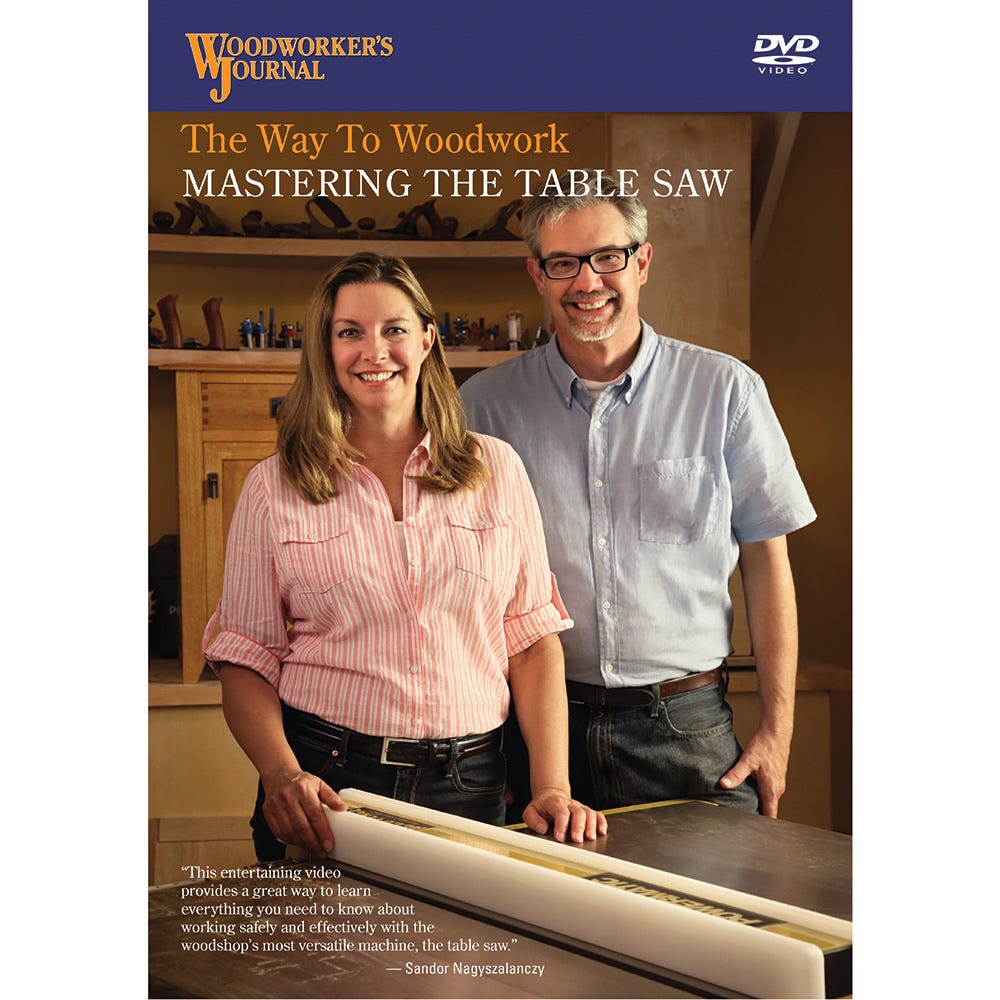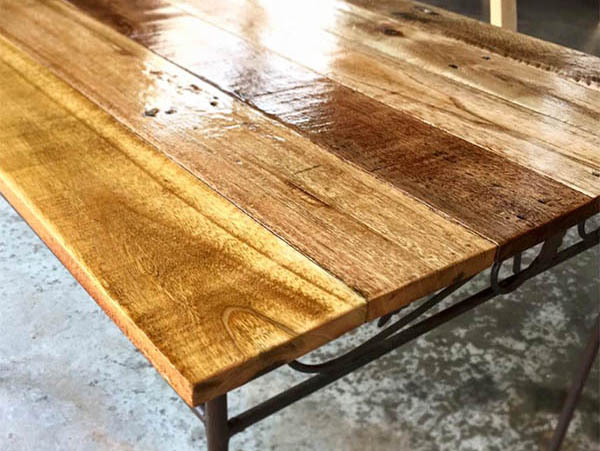
Up until about 18 months ago, Ricky Fitzpatrick was working in corporate sales. “It was stressful; I was overweight; I had terrible habits,” he said. And, at age 46, he had a heart attack. After that, “The family decided it was time for me to exit the corporate world.
Then, “I gravitated back to what I knew, which was woodworking.”
The reason Ricky knew woodworking? Back when he was a teenager, his mother “threw me into it kicking and screaming,” he said. A crafter who wanted to have pieces to sell at craft shows, Ricky’s mother believed his abilities to do painting and hand lettering should also transfer to being able to do woodworking. She bought him a band saw, radial arm saw and other tools, and “I learned at my mom’s demand” to produce small décor items for the craft show circuit, Ricky said.
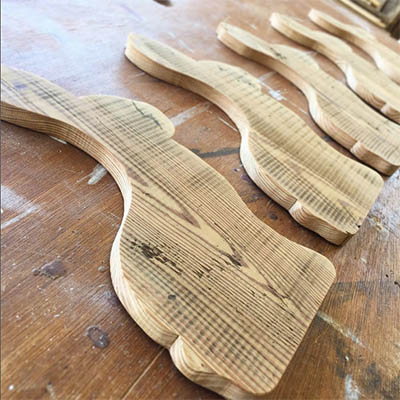
He’s still making some of those crafty items, but he’s also started out to branch out into furniture and other pieces – prompted in part by an opportunity on the locally produced “Trusted Renovations” TV show. “A friend of a friend of a friend called and asked if I wanted to be on,” Ricky said. “I had never made a table before. She said, ‘Can you make us a table?’ I said, ‘Oh, sure’ – then we had to figure out how to do it.”
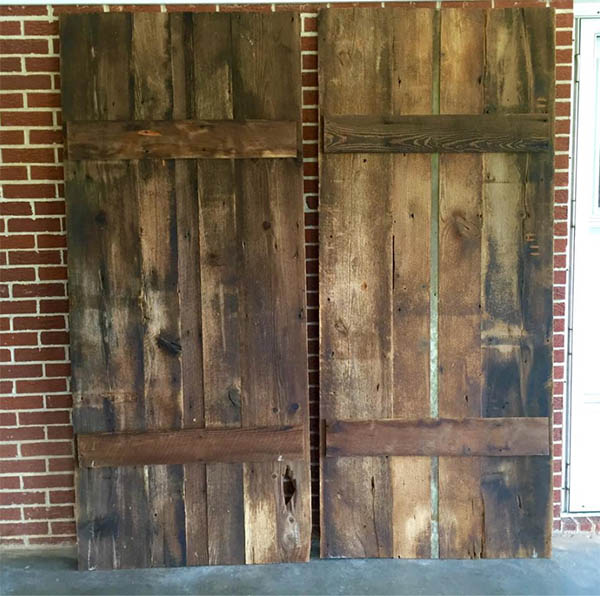
In addition to the table, Ricky ended up building some sliding barn doors and other pieces for the house being renovated for the show. “It was my nudge to get out of crafty stuff,” he said.
Those pieces were a learning process for Ricky, who admits he is “not very technical” about his woodworking. “That’s not taking away from someone who is very technically proficient, but everything doesn’t have to be measured to the 64th of an inch. I don’t have to be technically proficient to end up with a beautiful product at the end. I’m a pretty methodical guy. I measured and cut and next thing I knew there was a table.”
He also discovered that he loves making tables. “My favorite thing in the world to build is a farm table.” The lines, Ricky said, are simple and elegant, and the 90- and 45-degree angles are forgiving and not complex. “You can make it rustic and use cool joinery. It’s a wonderful way to let me be creative but not ruin the design of a classic parsons table.”
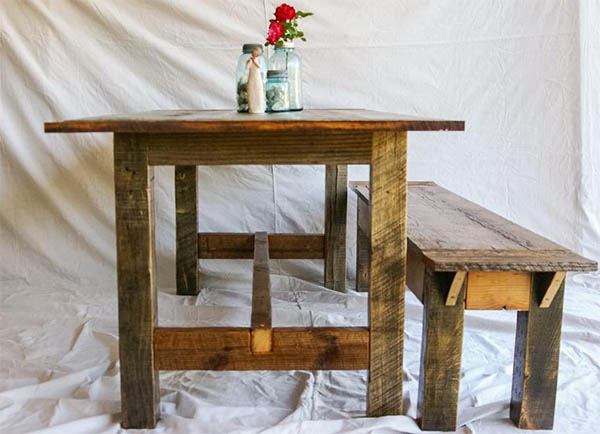
When he was younger, Ricky had aspirations of being a graphic designer and commercial illustrator, which he says has stood him in good stead. That background, he said, allows him to methodically work through projects in his head, and sometimes transfer it to paper. “I have a plan in my head, but it’s a malleable plan.”
In part, that malleableness is because Apple Valley Farm (Ricky’s family business) works exclusively with reclaimed wood. “You never know what you’re going to get. Sometimes we have to modify to work with the wood we’ve got with the tools we’ve got.”
When he started out, working with reclaimed wood wasn’t necessarily a conscious decision – it was just what was at hand. He knew people were doing things with pallet wood, so took a couple of pallets home from the office where he had worked (“and learned they weren’t designed to be torn apart,” he said).
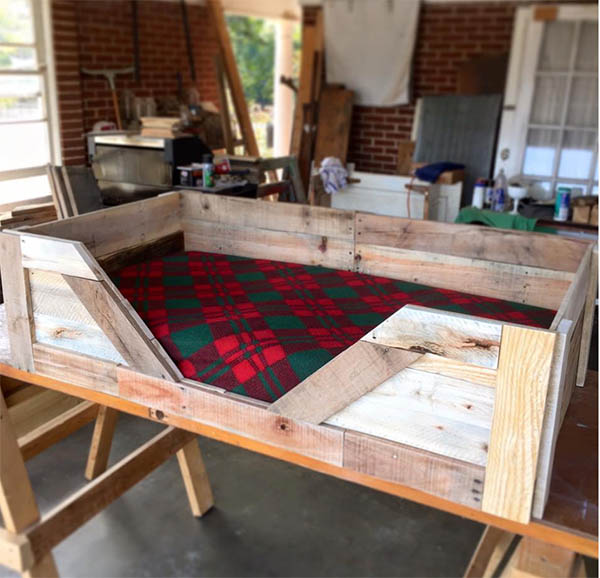
Shortly after that, a friend told him a nearby house built in 1895 was being renovated. “He said they were throwing the wood in the dumpster, and [I] needed to go down there. I have no shame: I pulled hundreds of feet of old heart pine and oak beams and stuff out of there.”
“I began to realize this is really cool. You get character with reclaimed wood that’s sometimes impossible to replicate with a new piece of wood,” Ricky said. And the opportunities to acquire that old wood kept coming: “People would say, “You can have this house, or this barn’: God was opening doors.”
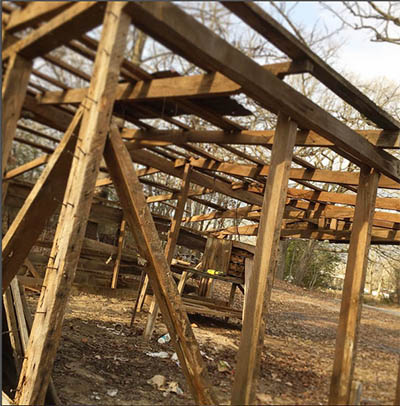
Ricky quickly found both that he loved deconstruction, and that it could become a business unto itself. “I’ve had to tamp that down a little because there’s not enough of me to go around,” he said. He also noted that there are particular challenges that come from harvesting wood from old buildings. “Old wood, sometimes it can be ornery,” he said. “It’s been there for a long time, and it doesn’t want to come down. The folks who built these things 100, 150 years ago, I don’t know if they didn’t know what they were doing and they overengineered these buildings, or if they did know what they were doing and they overengineered them. They’re easy to tear down, but they’re not easy to deconstruct.
“Going in with a hammer and a pry bar and trying not to split a piece of wood can be a challenge. You’re working on one board for 15 minutes and thinking, ‘There’s no way I can make money on that,’ but that’s not what it’s about. Taking things apart in a careful manner is sometimes very rewarding, but it can be very tedious.”
Plus, there’s the critters. “I’m a scaredy-cat. Spiders and mice? I hate that stuff,” Ricky said. Once he gets into a project, though, “I’m kind of like my son: once I get playing, it doesn’t matter what happens; I’m in the zone.”
Or, sometimes, he’ll get his wife to kill the mice for him.
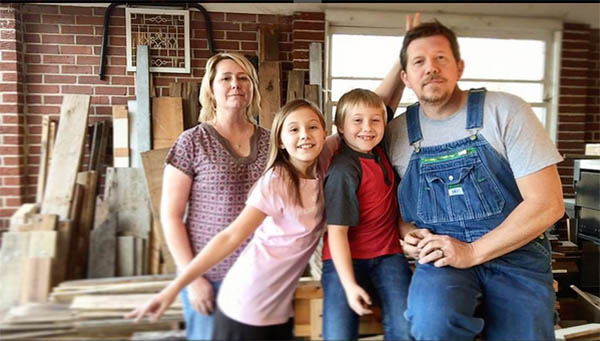
“What we do is very much a family-oriented business,” Ricky said. “I am at the forefront of what we’re doing; I’m the guy people are meeting, I’m the guy on the videos,” but “If it were not for my wife, I would probably already have had to go back to the corporate world. She’s the organized one, the voice of reason.”
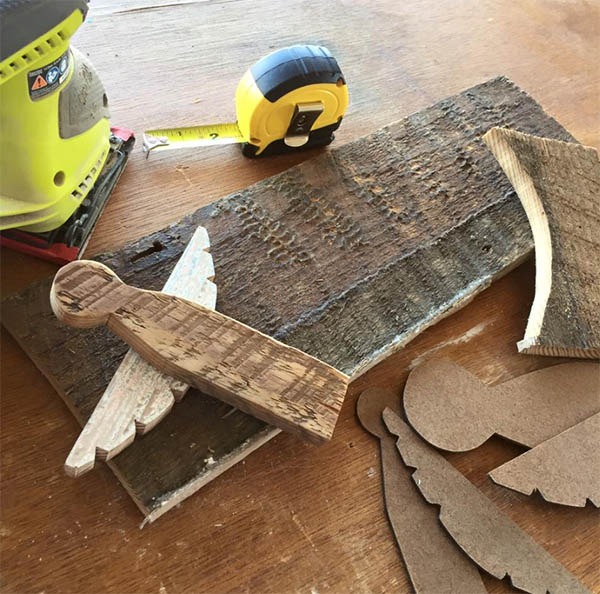
Not only his wife, Cretia, but the kids, too, are involved. Stepdaughter Emma, age 11, is involved with shooting the videos that are a part of the “huge” social media side of the business, while youngest son Jude, age 7, “wants to be wherever Daddy is right now, which is really cool. It’s a neat feeling not just to be able to teach him woodworking, but having two older grown sons [Caleb and Cameron], my perspective on my youngest son is this isn’t going to last forever. I use it to teach him things other than how to make a table.”
“We’re people of faith,” Ricky continued. “We believe the Lord put us in front of people and put us in positions we might not have recognized. We’re really grateful for the way things have unfolded for us.
“I came out of a very structured environment into an environment giving me a tremendous amount of freedom, not just with my time, but freedom to be creative.”


